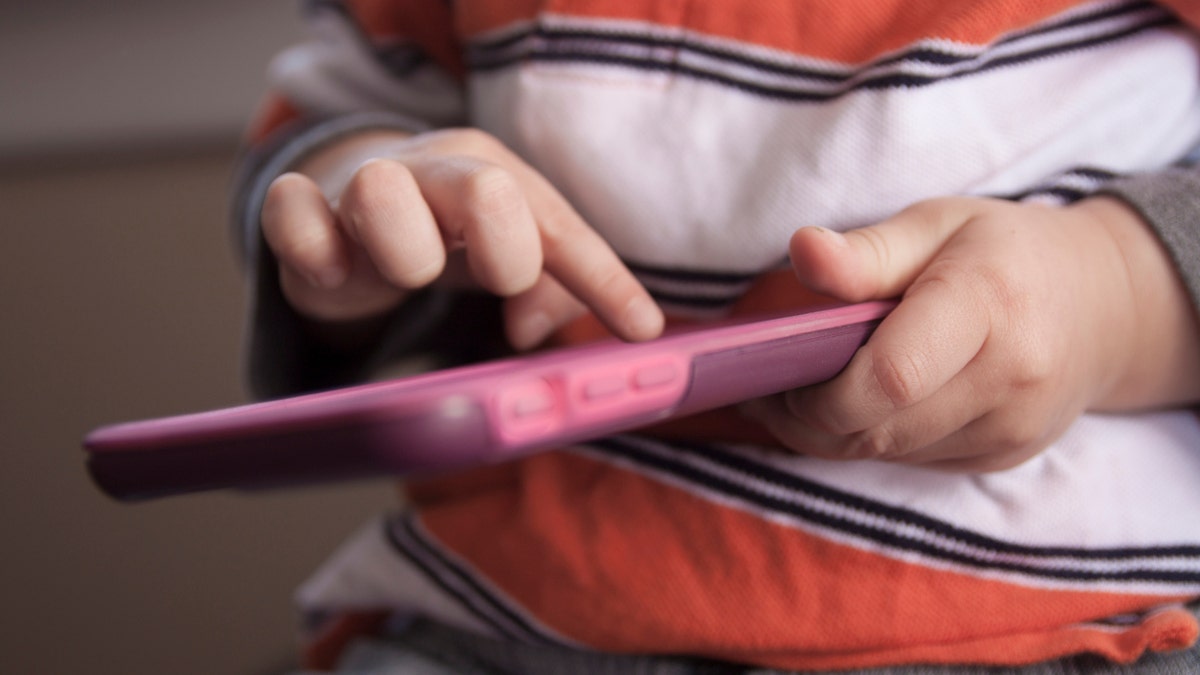
A toddler swipes the screen of a smart phone (iStock)
A new observational study confirms a gut feeling many parents likely already possess: When it comes to learning, technology is no replacement for human interaction.
Researchers from the Cohen Children’s Medical Center of New York found that babies and toddlers who played non-educational games using smartphones, tablets and readers tended to have lower verbal scores than youngsters who didn’t use the devices. The age group ranged from infancy to 3 years old.
"It was striking to see that parents were substituting books and general baby toys for smart phones,” Ruth Milanaik, DO, chief investigator of the study and an attending developmental and behavioral physician at the Cohen Children's Medical Center of New York in New Hyde Park, said in a news release. “Many parents did not seem to bring any other distraction for their children except the touch-screen devices."
DOES YOUR NEWBORN NEED A BABY BOX?
To draw their results, researchers surveyed 65 families on the average age their child started using a touch-screen device and how often they used the devices daily. The study authors found that, overall, 97 percent, or 63, of the families owned a touch-screen device, the average age a child began using the devices was 11 months, and they used them about 36 minutes daily on average.
Researchers also asked parents to identify how their infants and toddlers were using the smartphones. The most common reason the youngsters used them was for watching so-called educational shows (30 percent), using educational applications (26 percent), randomly pressing buttons (28 percent), and playing non-educational games (14 percent), according to the release.
Sixty percent of the parents reported that their children enjoyed educational benefits from using a touch-screen device, but the study found that verbal scores were no better among youngsters who had exposure to the devices and those who didn’t. However, those children who did play non-educational games saw their verbal scores take a hit. Those games included Fruit Ninja and Angry Birds.
5 WAYS PARENTS CAN BETTER THEIR DAUGHTERS' SELF-ESTEEM
In the paper, which was presented this week at the Pediatric Academic Societies in Vancouver, Milanaik noted that the findings may suggest a need to revise current federal guidelines on tech use for small children. That’s because the most recent policy, issued in 2013 by the American Academy of Pediatrics (AAP), actually encourages electronic media use among kids under age 2, but does not address kids up to age 3, a group the study suggests may suffer cognitive delays from use of non-educational toys.
"Technology can never replace a parent's interaction with his or her child. Just talking to your child is the best way to encourage learning" Milanaik said in the release.








































